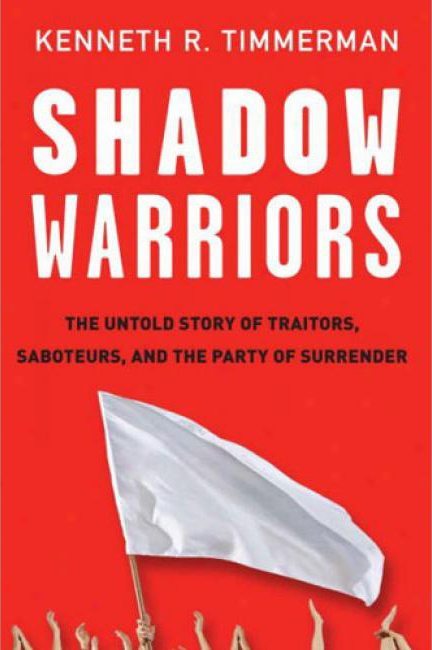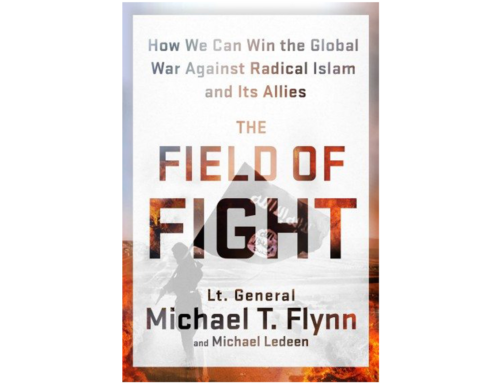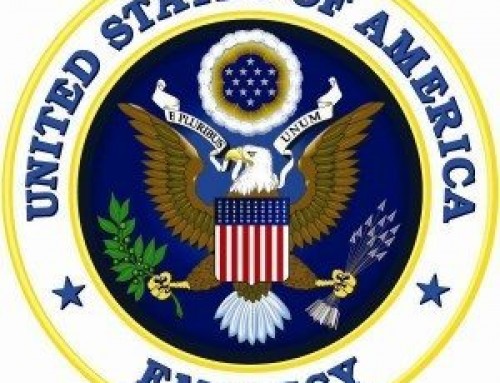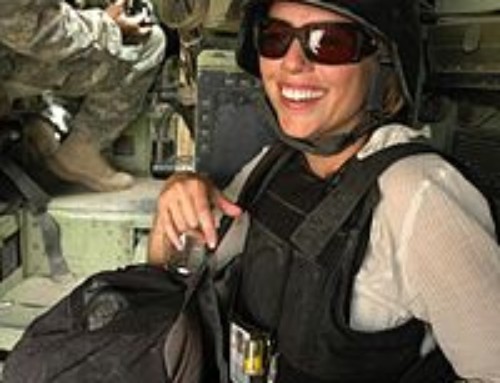Kenneth Timmerman’s new book, Shadow Warriors: The Untold Story of Traitors, Saboteurs, and the Party of Surrender, is a potent assault on the enemy within. The late great U.S. Ambassador to the United Nations Jeanne Kirkpatrick once reflected upon her role in the war against the Communist bloc and its sycophants by remarking, “We understood that our words were weapons.” Now, in a world where ubiquitous Internet-bound words penetrate every private salon from Tehran to Manhattan’s Upper East Side, Timmerman has detonated a rhetorical bunker buster.
Shadow Warriors is undoubtedly setting off shock waves inside the American intelligence community, because it exposes the offensive conducted by hyper-partisan bureaucrats working inside our security agencies that routinely leak, distort or withhold information to gain political advantage by undermining the country’s war effort. It carefully documents the treachery committed against the United States by members of the American left who work inside the permanent government. The book is also a repudiation of the left’s current, most-defining issue, which holds that Bush made use of faulty intelligence in order to rush the country into the wrong war, in the wrong country, at the wrong time. It renders null the banal mantra “Bush lied, people died.”
Iraq, al Qaeda and WMDs
Thanks to an unprecedented four-year propaganda offensive, most Americans have concluded that Saddam Hussein’s Iraq had no relationship with al Qaeda and that it had no programs aimed at developing chemical, biological or nuclear weapons. Timmerman easily eviscerates this version of conventional wisdom by quoting King Abdullah II of Jordan, who, on April 17, 2004, informed the world that his intelligence agency foiled a plot by al Qaeda to bring in from Syria 20 tons of Iraqi-made sarin gas and detonate it in the capital city of Amman. Estimates were that it would have killed 20,000 people, seven times 9/11, and eliminated the American embassy as well. It was stunning evidence that Iraq had not only moved stockpiles of WMD to Syria before the invasion but that the remnants of Saddam’s regime retained an operational link to al Qaeda. “It was a major, major operation,” King Abdullah said. “It would have decapitated the government.”
Some passages in Shadow Warriors take on the aspect of a John LeCarre Cold War thriller. For example, the book makes public for the first time reports that were sent to Deputy Undersecretary of Defense John Straw (one of the book’s few good guys) by a British spy, Stephen, a self-styled “Lawrence of Arabia,” who was on the ground inside Iraq in the weeks prior to the U.S.-led invasion and who saw the evacuation, cleanup and transportation of WMD stockpiles and production equipment. Stephen was able to observe the operation being conducted by non-uniformed Russian special forces (Spetsnatz) who loaded the drums of chemicals and biotoxins on huge 18-wheelers and shipped them to destinations inside Syria and Lebanon. Amazingly, Stephen’s network was so good that he was able to track the shipments to specific villages in Syria or to hospitals in Beirut and, in some cases, even to the specific doctor who received the drums. Straw also got corroborating reports of the Russian evacuation operation directly from the Ukrainian head of intelligence, Gen. Ihor Smeshko, whose agency refused to work with the CIA or any conventional U.S. intelligence agencies for fear of leaks that would, in turn, result in great political peril. The Ukrainians reported to Straw that the former head of the KGB, Yevgeny Primakov, who had a long-standing business relationship with Saddam Hussein, headed up the WMD evacuation operation and even learned its code name, Sarandar (Russian for emergency exit).
While the true import of the Amman interdiction and the King’s statements went largely underreported by the Western media, it gives extra gravity to Timmerman’s thesis because it demonstrates just how treacherous are the shadow warriors—the Bush enemies who, for much of this decade, have sought to undermine the administration’s war effort from their shadowy positions inside the CIA, State Department, Justice Department, the media, congressional staffs and even the Pentagon. Among other things, the book makes clear that these shadow warriors have no moral standing, because they have been guilty of working to undermine a legitimate war, a war in which Iraq is only one theater and in which the West is pitted against a very lethal enemy.
Exposing Saboteurs
With 30 years of experience reporting on national and international security affairs, Timmerman skillfully skewers a whole host of saboteurs, shining a bright light on many of them: the absurd Joe Wilson; Mary McCarthy, the woman who was frog-marched out of CIA headquarters for leaking information related to our use of secret prisons for the interrogation of high-value al Qaeda captives; Bill Keller, executive editor of the New York Times, whose decision it was to publish the leaked details of what his newspaper dubbed the NSA “warrantless wiretaps;” and even Deputy Secretary of State John Negroponte, the top shadow warrior of them all, who personally plotted the firing of Porter Goss, Bush’s own CIA director, so that he alone could package and slant the daily intelligence briefings for the President.
Timmerman reserves special opprobrium for characters such as Tyler Drumheller, the CIA’s European division chief. He shows that, as was the case with Ukrainians in Iraq, our European allies so greatly mistrusted Drumheller that they would not even allow the United States to debrief or meet with their asset, “Curveball.” He was that infamous Iraqi defector who provided false or unsubstantiated information regarding Iraq’s bioweapons, false testimony that found its way into the 2002 National Intelligence Estimate and was cited by Colin Powell as one of the many reasons for deposing Saddam Hussein.
The Democrats in Congress and their allies in the media have uniformly held up Curveball as prima facie evidence that Bush used false intelligence to take the country to war. For Timmerman, the truth is that our intelligence agencies are so full of people, senior people, willing to leak sensitive secrets that it’s no wonder that they couldn’t give President Bush good information on Iraq.
I spoke to Timmerman by phone and asked him if he would like to comment on the most recent National Intelligence Estimate (NIE) on Iran that stated that we now have a “high confidence” Tehran “halted its nuclear weapons program in the fall of 2003,” a stunning reversal that appears to have destroyed our negotiating leverage with the Iranians and has further damaged the credibility of the American intelligence community among our allied services.
“It came as no surprise to me,” he responded. “In the book, I profiled
“The Bolton confirmation hearings were a watershed moment for the anti-Bush members [in the bureaucracy] and their congressional allies because they realized they had won,” Timmerman continued. “They saw that they could block anybody to any position.”
PC Intelligence Community
Timmerman explained to me that the bottom line with Iran is that we simply do not know what is happening with respect to its current nuclear proliferation because, as he puts it, our intelligence community has been “politically corrected” and is therefore not capable of recruiting spies anymore.
Someone noted that running U.S. foreign policy has a level of difficulty roughly equal to that of playing chess in three dimensions. Many of Timmerman’s readers will likely wonder why Bush did not make use of the reports sent from the British spy Stephen, documenting the Russian WMD evacuations, or the reports from Gen. Georges Sada, the former head of the Iraq air force, who, after the fall of Baghdad, returned to his native land and interviewed numerous pilots who flew WMD’s into Syria.
Why would President Bush have wanted the information to be buried when it could have vindicated him after suffering such a massive propaganda offensive waged by the media and their allies, the shadow warriors? The question might be answered definitively only by future historians, but Shadow Warriors poses a chilling and timely theory—Lt. Gen. Thomas McInerney thought the reason was Iran. “With Iran moving faster than anyone thought in its nuclear programs, the administration needed the Russians, the Chinese and the French, and was not interested in information that would make them look bad.”
NOTE: Publication: Human Events




